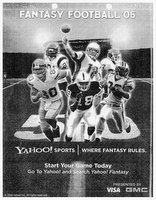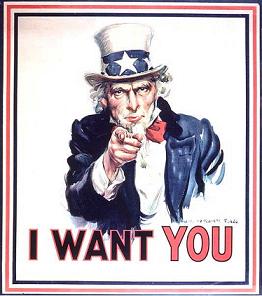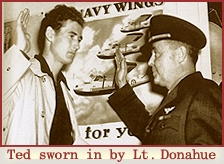Here at Charlie's Blog, we don't do that. Fuck no. That's because we have a staff of one, and I only get to write on vacation. But you'll still get an end of year retro from me.
2006 was one of the happiest years of my life. I shit you not. I had a lot of drama happen to me. I've been sick for damn near two months. I had a flare up of Achilles tendonitis that nearly crippled me for a week. I finally got my first speeding ticket (Thanks, Georgia, you shithole state.) I had my car stolen and wrecked. Then, there's the Alma Jean story which I am going to finish up (I promise.)
I've been through a ton of crap this year. But I shook that shit off. And how did I do this? I did what Cool Hand Luke couldn't do. I got my mind right.
Life is a joke. I've simply learned to laugh at it. That's all there is to it. Depression is not so much a mental illness than a philosophical crisis. It is an inability to have one's worldview jibe with the reality of the world.
I am the happiest person I know. I still get pissed off. I get sad when something happens like when somebody dies. But happiness is not about emotions. It is a feeling of joy and wellbeing that is based in reality. I'm not talking Tom Cruise happiness, folks. I'm not into religion or drugs or other forms of mindless bullshit.
My happiness is also not the product of hitting the lottery or embracing some Tony Robbins self-help horseshit. Successwise, I am a total failure. I am broke. I am fat and bald. I am really out of shape. I have a small penis, and I am unable to bring a woman to orgasm. But I am a happy motherfucker.
I really can't say why I am happy except that I think it has something to do with my philosophy of life. This philosophy has no name, and it is not original with me. It is an eclectic mix of libertarian politics, empiricism, skepticism, and Aristotle. I have a manifesto in the works which I intend to publish here when I get off my creative ass and write it.
The bottom line is that I don't take things too seriously anymore including myself. I enjoy working. I question things. I laugh at absurdity. The happiness I have found is the real thing, and I have a year of shit to prove it. Will it last? I don't know. My happiness may evaporate like a fart in a hurricane if I were to fall victim to a homosexual biker gang or get hit by a stray asteroid in the gonads. But so far, I feel great.
Looking back over my life, the last time I was happy like this was a seven month stretch back in 1989 and 1990. The difference between now and then is that I had no idea why I was happy back then. The depressing aspect of all this is that 19 months of happiness out of 36 years is not a whole lot of happiness. But it is a lot more than a lot of other people have had. I know people who have everything going for them but are utterly miserable. It really boils down to mindset.
All I can say is that it has taken me my whole life to get to this happiness. I've been up many blind alleys, but I finally figured it all out. Like Edison with his lightbulb, I know what doesn't work. But you are probably looking for a recipe, so I'll give it to you.
CHARLIE'S QUICK AND DIRTY RECIPE FOR HAPPINESS
1. Stop believing in God.
Nothing will make you more miserable than believing in a deity that doesn't exist. I know because I used to believe in God, and I was convinced that the fucker hated my ass. Now, I realize that things happen out of chance. I'm not a sinner facing eternal condemnation in Hell. I don't have to feel guilty anymore, and I don't have to wait for God to answer my prayers for me. I know if anything is ever going to get done it is up to me. And this life is the only shot I get, so I'm not going to waste it. I intend to live it up.
2. Stop believing in love.
The most miserable times of my life have a woman's name on it. One of the dumbest things a person can do is expect happiness to come from another person. A lot of shitheads will tell you that you can't be happy unless you find that special someone to spend the rest of your life with. But those same people are left with frustration and disappointment. All of the data indicate that the business of love is a recipe for misery and disaster. People like to make fun of the love disasters out in Hollywood, but all those infidelities and break ups are a more accurate reflection of American life than the movies that get made. Hollywood stars aren't any worse than the rest of us. Love is misery.
3. Stop being afraid.
Marcus Aurelius stated that fears are greater in your mind than they are in reality. He was absolutely right. Things have never turned out as bad as I thought they would. This doesn't change the fact that shit happens. The key to overcoming fear is not to think that things won't happen to you but to believe in your ability to get through them. It also helps to realize that most of the fearmongers are full of shit.
4. Become a workaholic.
I don't know how working long hours became a vice, but vice or virtue, working is great. The one thing I take from Aristotle is that happiness flows from a life of activity. For me, nothing is more exhiliarating than getting things done. My only regret is that I can't do more. The result of workaholism is that you make a ton of money, feel good about yourself, and sleep well at night (or any other time you get a chance to snooze.) Working is the most important element in this recipe.
5. Be selfish and don't feel guilty about it.
Altruism leads to bitterness. There's nothing wrong with looking out for number one. Be selfish and pursue what makes you happy. Just remember this caveat. Don't hurt other people. This is the essence of the Golden Rule. Treat others as you would have them treat you.
Guiltmongers love to throw your selfishness in your face, but remember that they are full of shit like the fearmongers. Unlike you, these people pursue their self-interest at the expense of others. They are parasites who demand that you sacrifice for them. They love to use words like "compassion" and "service" and the "greater good." But don't be fooled by the PR. These selfless people are just as selfish as you are. They simply lack ethics and live off of deception and theft. It is no crime to refuse to be a sucker, so tell the guiltmongers to go fuck themselves.
6. Be self-effacing.
Fuck the positive self-image horsecrap. Make fun of yourself. People will like you a lot more, and you'll like yourself a lot more, too.
7. Enjoy the good things in life.
I can't tell you what those good things are because they are different for everyone. For some people, it is bowling. For others, it is golf. For still others, it is having sex with two midgets while wearing a pink corset and eating chocolate cake. But my sex life is irrelevant to this discussion.
Pleasure lies in neither abstinence nor overindulgence. Both Epicurus and Aristotle agree on this. If you overdo it or underdo it, you are not enjoying it. That's all there is to it. I have been through enough hangovers and indigestion to know the truth of this.
That's it. That's my recipe, but it really represents the tip of an enormous philosophical iceberg. I don't know if doing these things will bring you happiness without the understanding that comes with it. In addition, you could probably omit some of these things and still be just as happy. I don't know. But I'm happy, and I hope to stay that way.
 This story isn't as interesting as Tara Conner, but last Friday, ex-Saints fourth string quarterback Adrian McPherson filed a lawsuit against the Tennessee Titans because their mascot hit him with a golf cart while he was warming up on the sidelines before the second half of an August exhibition game. The short 4-page complaint (actually three because the fourth page contains the signature block), which can be accessed at
This story isn't as interesting as Tara Conner, but last Friday, ex-Saints fourth string quarterback Adrian McPherson filed a lawsuit against the Tennessee Titans because their mascot hit him with a golf cart while he was warming up on the sidelines before the second half of an August exhibition game. The short 4-page complaint (actually three because the fourth page contains the signature block), which can be accessed at 













